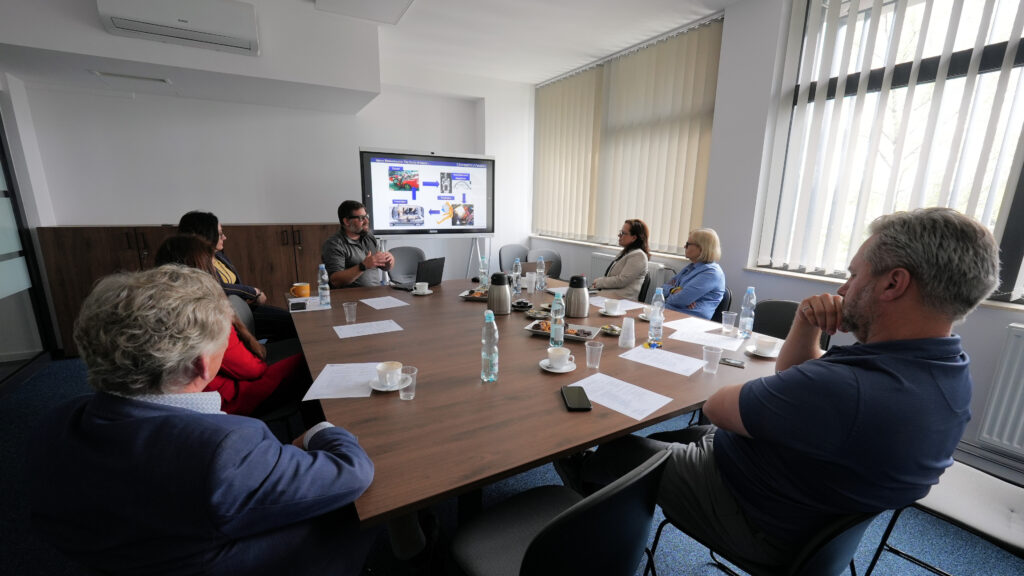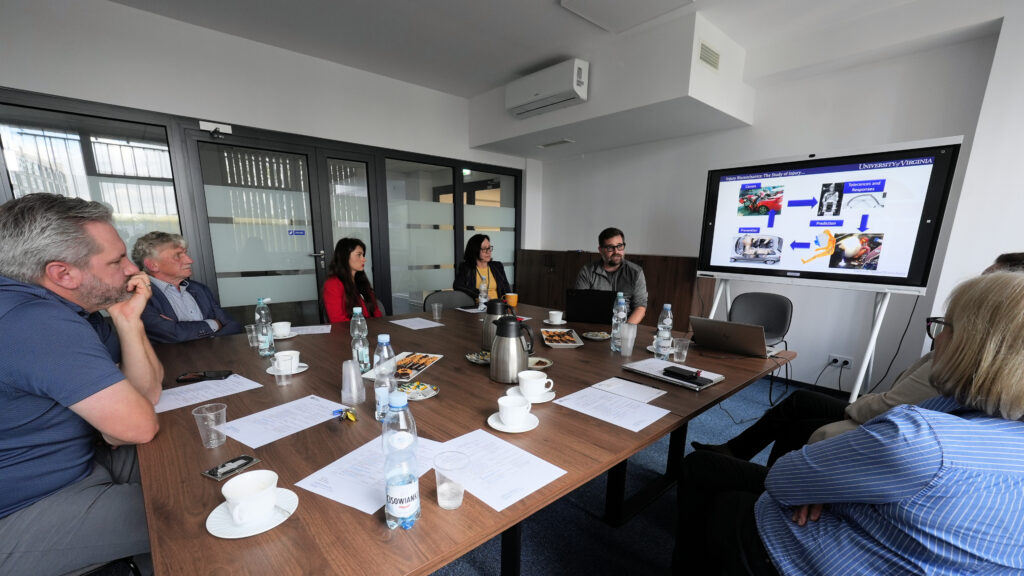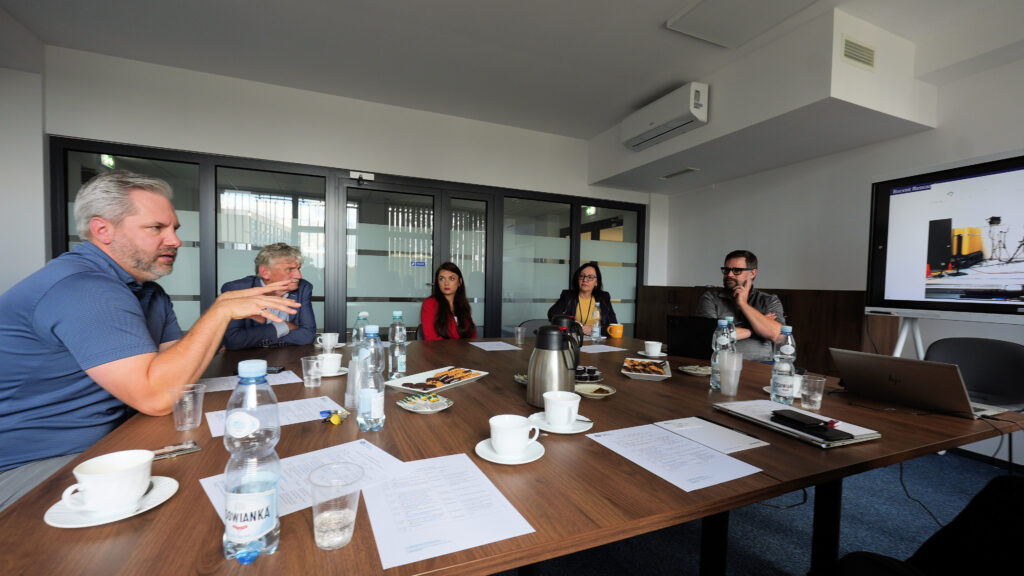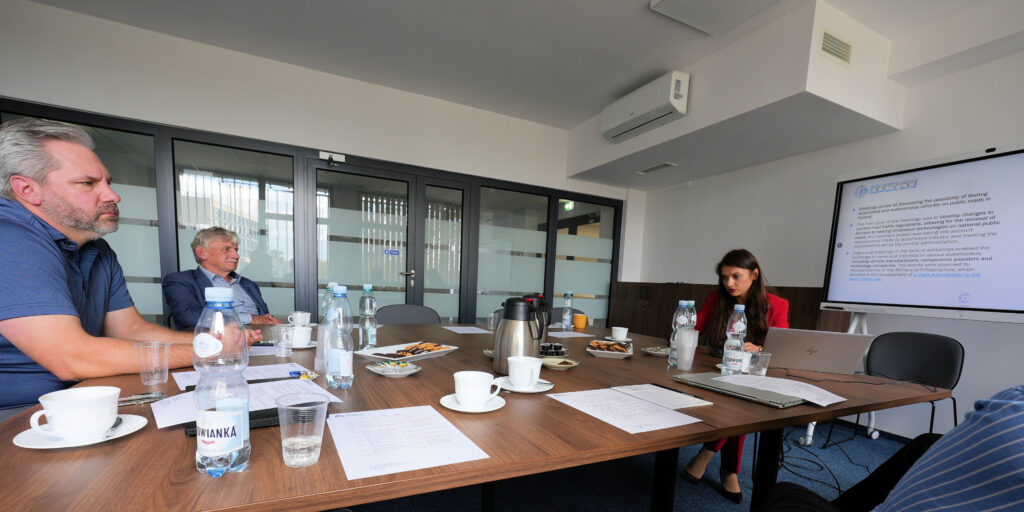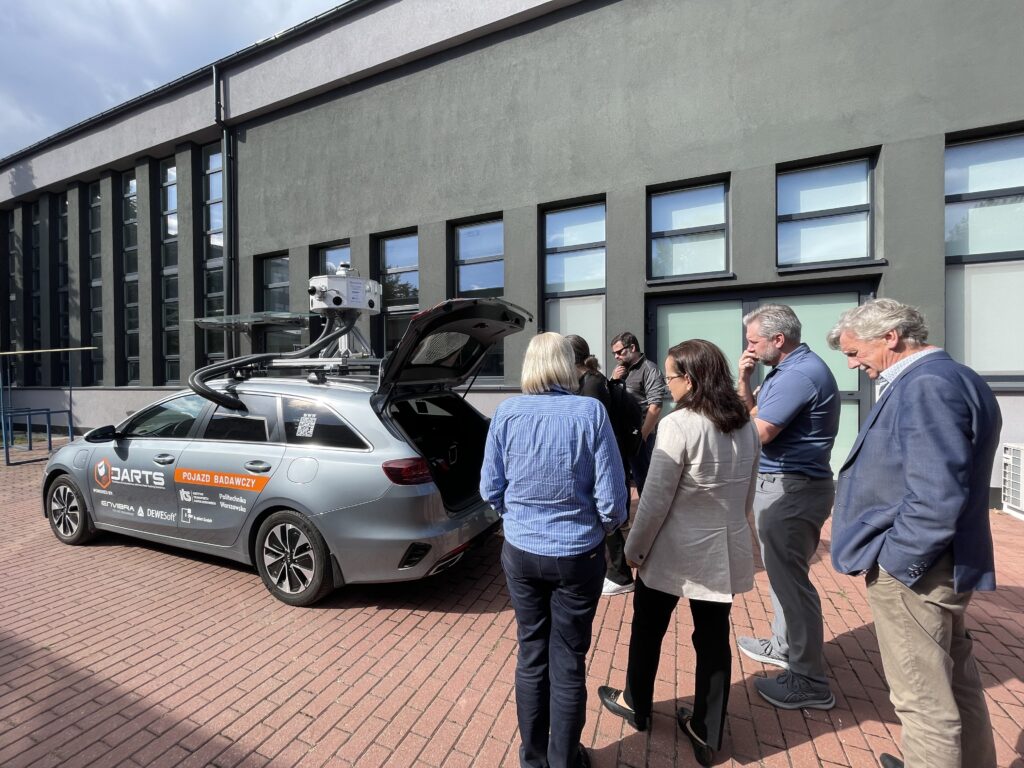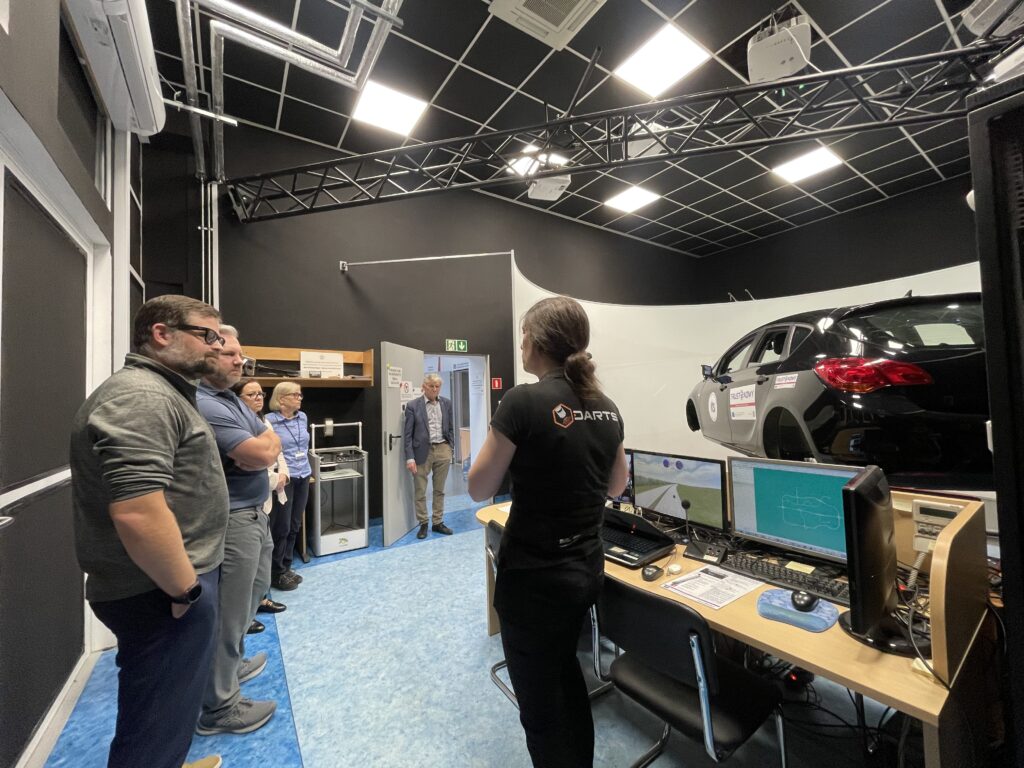Blog
Scientists from the University of Virginia visit ITS
The Motor Transport Institute hosted researchers from the University of Virginia (USA). Professor Matthew Panzer, Vice Dean of the School of Engineering and Applied Science, an expert in injury biomechanics and vehicle safety, and Dr. Bronisław Gepner, a graduate of Warsaw University of Technology and currently a professor at the Center for Applied Biomechanics, specializing in human body modeling and research on the protection of pedestrians and drivers, visited Warsaw.
The guests presented the activities of the Center for Applied Biomechanics, the world’s largest academic injury biomechanics laboratory, with particular emphasis on research into passenger and pedestrian safety, military injuries, sports biomechanics, and advanced computer modeling. The importance of the Center’s research results for road safety policies and regulations in the United States was highlighted.
During the meeting, the expert and R&D activities of the Connected and Autonomous Vehicles Competence Centre (CAVCC) were discussed. Research conducted with the use of high-class driving simulators was then presented, focusing on fatigue, drowsiness, the processes of transferring control between the driver and automation systems, and driver training. Examples of experimental studies were shown, followed by a live demonstration of the driving simulators’ capabilities. The UVA guests had the opportunity to drive on virtual roads themselves, experiencing realistic training and research scenarios.
Participants also learned about projects carried out by the Institute’s staff, including CK:PAP experts. The assumptions of the DARTS project, which aims to develop an international database for research on autonomous and connected vehicles, were presented. The 360 measurement platform purchased within the project was also demonstrated, showcasing its analytical capabilities.
Key points of the discussion included projects led by ITS focused on road safety and the consequences of road accidents. The objectives and goals of the international IMPROVA project (INJURY MITIGATION TO PROMOTE VISION-ZERO ACHIEVEMENT) were presented, aimed at improving road safety by addressing the complex problem of long-term consequences (LTC) of road accidents. Experts from the Road Safety Centre also shared findings from three European projects in which the Institute is involved: Baseline, ESRA, and Trendline. Milestones, main outcomes, and tasks carried out by ITS were discussed.
The visit also highlighted the importance of interdisciplinary research – in this case combining engineering, psychology, and medicine – which enables a better understanding of road user behavior and the development of more effective safety solutions. The relevance of international cooperation was also emphasized in several key areas, such as the use of computer models and simulator data in accident risk assessment, research on advanced driver assistance systems (ADAS) and autonomous vehicles, and analyses of injury biomechanics and road user safety.
The meeting at ITS was also an opportunity to establish connections between research teams from Poland and the USA. Participants stressed that continued exchange of experience and joint research projects may in the future contribute to creating solutions that improve road safety both in Europe and overseas.


